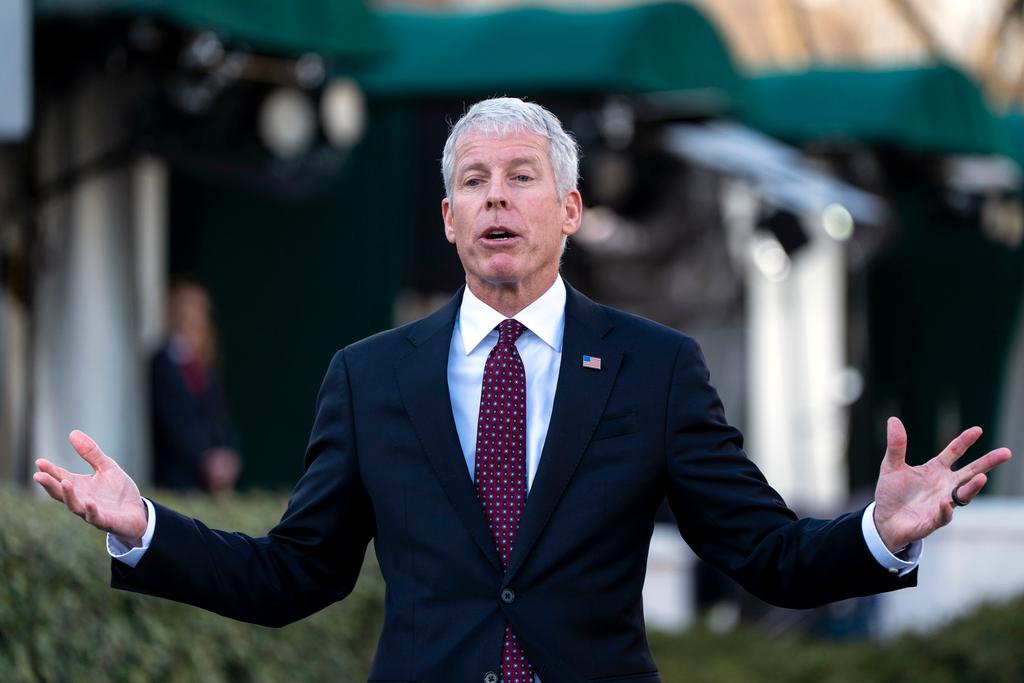
The new Secretary of Energy Chris Wright returned to his home state Thursday to tour the National Renewable Energy Laboratory in Golden, as the Trump administration continues to mull budget, staff and policy changes at the agency.
The department oversees a vast portfolio of national laboratories, maintains the country’s nuclear weapons stockpile and funds an innovation office to support new technology. The renewables laboratory in Golden has thousands of employees and has made key innovations in solar, wind and other clean-energy technologies meant to reduce planet-warming greenhouse gas emissions.
Wright praised the lab’s work during remarks to staff. But during remarks with reporters, Wright, the former head of the Denver-based fracking company now called Liberty Energy, said that calling climate change a crisis was a form of political theater that led to destructive policy choices.
“The biggest barrier in energy development the last few decades is people, for political reasons, calling climate change a crisis,” Wright said. He said climate alarmism led to policies that curtailed American infrastructure and may not actually reduce greenhouse gas emissions.
“So factories that would've been here in Colorado are instead in Texas or in Asia. You can say this is all for climate change,” Wright said. “But most of that is just nonsense. Honestly, it's just nonsense.”
During questions, Wright rejected a link between climate change and the Marshall Fire, Colorado’s costliest wildfire that burned over 1,000 homes. He instead said poor forest management practices have in part led to destructive wildfires.
“So calling these — the Marshall Fire, these other fires — due to climate change is just simply not to look at the data,” he said.
Some climate scientists have linked the Marshall Fire to climate change, though it was primarily driven by high winds. More frequent drought conditions and heat waves caused by climate change are also increasing fire risk in the West.
Staffing changes likely coming to DOE
NREL is the country’s primary lab for renewable energy technology and receives most of its funding from the federal government. It is unclear whether staff layoffs from DOGE, Elon Musk’s cost-cutting effort, have affected the laboratory.
Many NREL employees are not technically employed by the federal government and are instead paid by a third-party group known as the Alliance for Sustainable Energy, which oversees the lab.
But layoffs and budget cuts have ricocheted through other parts of the department. In February, over 100 employees who help oversee the nation’s aging nuclear stockpile accepted government buyout offers or were terminated, though many were later reinstated. On Wednesday, the Trump administration sent a new round of buyout emails to agency employees, according to the Washington Post. Internal lists have indicated that the department may cut billions in federal funding to clean-energy technology, according to Politico.
Wright did not detail the scale of further cuts but said staff were reviewing the entire organization to find out how to improve services while saving taxpayer dollars.
“It would be downright irresponsible if we weren’t doing this,” he said.
He also outlined challenges to the U.S. electricity grid, particularly from skyrocketing demand from artificial intelligence. On Thursday, the Department announced an initiative to build private data centers on department land by 2027, with the ability to generate their own electricity on-site.
Wright has been a strong proponent of “unleashing” American energy to keep costs down by ramping up the production of fossil fuels like coal, oil and natural gas. In the past, he’s cast doubt on the ability of renewables to meet American energy needs, and been critical of Biden-era climate policies.
President Trump’s newly announced tariffs could complicate efforts to ramp up electricity production though, by raising prices on equipment. Wright said he hoped countries would lower their tariffs in response, though many economists expect some countries to retaliate.
Policy U-turns
Wright’s focus on fossil fuel development is a U-turn from Biden-era policies at the agency, which sought to curb planet-warming greenhouse gas emissions and pursued a transition to clean energy.
In February, Wright ordered the department to take steps to increase energy production, refill the strategic petroleum reserve and prioritize research and development on certain renewables, like advanced nuclear, geothermal and hydropower. Wright also approved the first of several export authorizations for new liquid natural gas terminals on the Louisiana coast.
The Biden administration froze authorizations for some of those exports, citing their potential to increase planet-warming greenhouse gas emissions.
NREL began in 1977 as the Solar Energy Research Institute, established in part to deal with the aftermath of the 1970s oil crisis. In 1991, President George H.W. Bush elevated the facility to a national laboratory. Today, the lab partners with hundreds of companies to troubleshoot, and sometimes solve, thorny technical problems. The lab has endured cycles of funding and support — the Reagan administration dramatically cut the institute’s funding, while the second Bush administration fired, and then rehired, over two dozen employees.
Martin Keller, NREL’s director, seemed optimistic that recent changes from Wright have sped up construction and renovations at the lab.
“We love to go fast because we want to create a better planet, so we have to move fast,” Keller said









